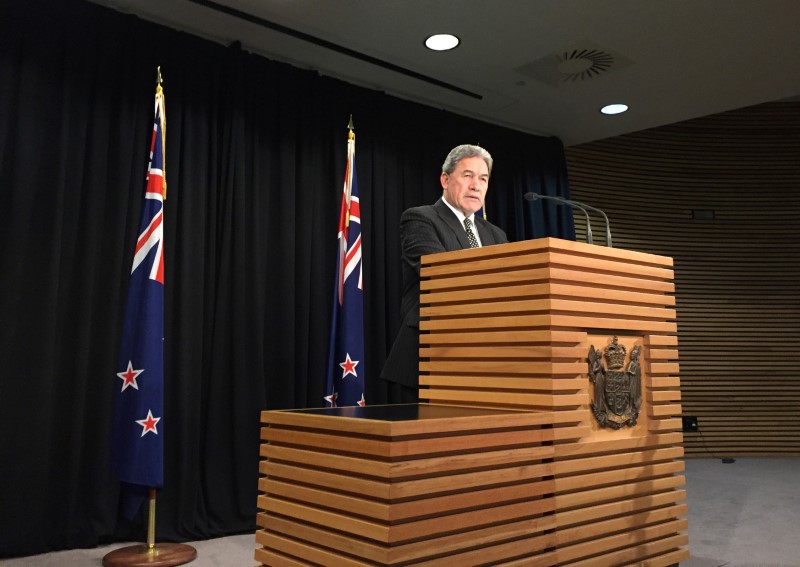By Charlotte Greenfield
WELLINGTON (Reuters) - New Zealand will develop a close relationship with China, Foreign Minister Winston Peters said on Tuesday, putting to rest fears that his protectionist campaign rhetoric would fuel tension with a key trading partner.
The 40-year political veteran played a decisive role in bringing the centre-left Labour Party to power in October after an inconclusive election left his nationalist New Zealand First party holding the balance of power.
But many in China see New Zealand as a model for the Asian giant's relationship with Western countries, with President Xi Jinping last year calling the depth of the bond "unprecedented".
"Our record of trade and economic firsts is dramatic," Peters, who is also deputy prime minister, told academics and diplomats in Wellington, setting out his stance on China for the first time since taking office.
"New Zealand will continue to seek closer cooperation with China as both countries focus on sustainable economic development and the wellbeing of our peoples," Peters said, giving a complimentary account of 45 years of diplomatic ties.
Peters had campaigned on a protectionist platform, vowing to slash immigration and curb foreign investment, which fuelled concern he could anger the Asian giant, the country's top destination for goods exports.
On the previous National government's watch, New Zealand became the first developed country to join the China-led Asia Infrastructure Investment Bank and helped usher in other Western countries, according to treasury officials.
Trade between the two countries has grown to more than NZ$24 billion ($16.54 billion) a year and New Zealand was the first Western nation to formally sign up to China's sweeping Belt and Road global infrastructure initiative in March.
The two are in the midst of negotiations to upgrade their 2008 free trade pact, which Peters said would "serve as a demonstration to our shared commitment to trade liberalisation".
He also defended China's human rights record, which has at times drawn fire from rights groups.
"When you have hundreds of millions of people to be re-employed and relocated with the change of your economic structure you have some massive, huge problems," Peters said.
"Sometimes commentators in the West should have a little more regard to that, and the economic outcome for those people, rather than constantly harping on about the romance of freedom."
China's crackdown on activists and lawyers in its campaign to stifle dissent was "alarming", New York-based Human Rights Watch said in September.

($1=1.4512 New Zealand dollars)